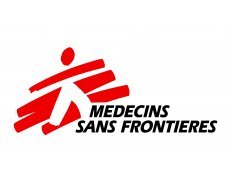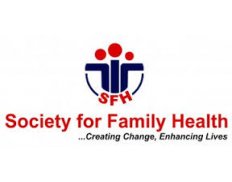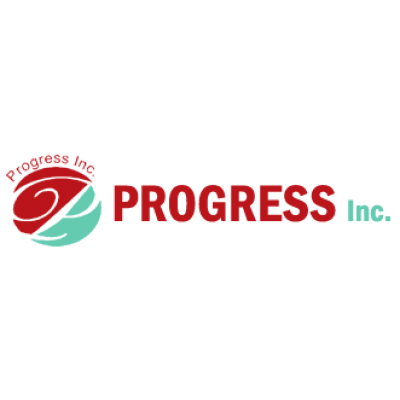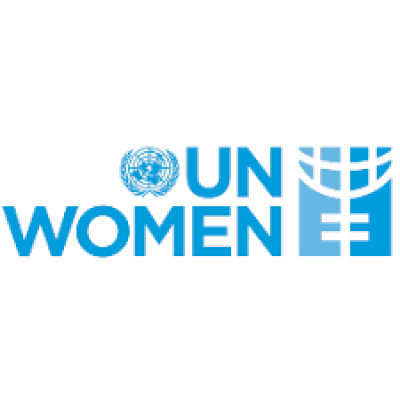Details
Description
Background
UN Women, grounded in the vision of equality enshrined in the Charter of the United Nations, works for the elimination of discrimination against women and girls; the empowerment of women; and the achievement of equality between women and men as partners and beneficiaries of development, human rights, humanitarian action and peace and security. In Nigeria, UN Women’s work is guided by its three-pronged mandate: 1) Normative support to the Nigerian government, including Federal and State Ministries of Women Affairs, in championing initiatives and implementing policies, systems and practices that advance women’s rights; 2) Programmatic interventions across four priority areas: Women, Peace, Security and Humanitarian Action (WPSHA), Economic Empowerment and Resilience, Leadership and Political Participation, and Ending Violence Against Women; 3) Coordination of gender-focused networks and platforms within the UN system and development community to promote and advance gender equality in line with the development and humanitarian objectives. Over the years, Nigeria has been contending with incessant violent conflicts across the six geopolitical zones. These include attacks by the Boko Haram insurgents in the North-East, farmer-herder conflict, resource-based conflict in the Niger Delta region, as well as a general increase of incidences of armed robbery and kidnapping for ransom. The humanitarian crisis in North-East Nigeria remains one of the world's largest and most complex humanitarian crises. Though women constitute about 50% of the country's population and contribute in many informal ways to conflict resolution, they continue to be poorly represented in formal peace and security processes. The security sector institutions are major actors engaged by the government to prevent and respond to the security issues in Nigeria. These institutions include the Armed Forces of Nigeria (AFN), Nigeria Police Force (NPF), and Nigeria Security and Civil Defence Corps (NSCDC). However, there is a huge gender gaps in the policies and operational procedures by the institutions, at all levels. The advancement of gender balance in security sector institutions has been increasingly identified as a key strategy for enhancing gender-responsive security sector response, which is supported by global normative frameworks, including the United Nations Security Council Resolution (UNSCR) 1325 (2000) and UNSCR 1820 (2008), among others. Ensuring women’s meaningful representation in the security sector is critical to building an inclusive, responsive, and accountable security sector that reflects the diversity of the community it serves and better responds to their needs.
In view of the above, UN Women facilitated several strategic initiatives to enhance gender-responsive security sector operations in Nigeria. One of these is the Enhancing Gender-Responsive Security Operations and Community Dialogue Project (2020-2021), supported by the Government of Germany. The project successfully enhanced the integration of gender-sensitive and human-centric security responses into the security sector at the federal level and target areas in Borno and Yobe states. The development and adoption of gender policies by the AFN, NSCDC and review of gender policy of the NPF. Moreover, the development of a standard training manual on gender for security institutions, and the adoption of training manual and SOP on SGBV by the police, supported by the project creates opportunities for further engagements and consolidation of achievements for sustainable impact. These initiatives will therefore be further supported under Phase II of the project.
The project “Enhancing Gender-Responsive Security Operations and Community Dialogue in Nigeria - Phase II (2023 – 2024) is designed to consolidate on the successes recorded by achieving the following outcome results: (i) Security sector legislation, policies, and institutions are reformed to promote gender equality, and women’s participation and rights.; (ii) Women in their diversity, especially those in conflict-affected grassroots communities are empowered to voice and assert their rights to protection and have enhanced collaboration with security institutions to address community security needs in an inclusive and gender-responsive manner; and (iii) Coordination mechanisms among key security sector institutions in Nigeria is improved to address the security needs of individuals and communities in a gender-responsive and inclusive manner. The Governments of the target states (Borno, Yobe and Adamawa) will also be supported to review the State Action Plans on Women, Peace and Security in their respective states, in line with emerging issues, including strengthening mechanisms to enhance the implementation of the policy documents. The entry points will include continuous engagements with the Federal Ministry of Women Affairs at the national level and other MDAs, Legislators at the National Assembly, and Security Institutions (including AFN, NPF and NSCDC). At the state level, the State Ministry of Women Affairs and other key MDAs, Traditional and Religious Leaders, CSOs, Community Security Platforms (CSPs), Mixed Observers Teams (MOTs) and Women-Led Organizations (WLOs), among others, will serve as the entry points.
Reporting to the Programme Specialist/Coordinator, the Monitoring and Reporting Analyst will provide support to the Project Team and Country Office colleagues in incorporating monitoring and reporting into programme formulation as well tracking against Strategic Plan targets and the reporting of results to internal and external audiences.
Duties and Responsibilities
Facilitate and substantively contribute to the incorporation of monitoring and reporting into programme formulation
- Facilitate and substantively contribute to the development of monitoring indicators, monitoring calendars, field monitoring plans and quality assurance processes;
- Include inputs from relevant evaluation findings, conclusions and recommendations into programme formulation;
- Contribute to annual work plan monitoring, reviews and reporting;
- Provide technical support to partners in developing Performance Monitoring Frameworks (PMFs), systems and plans, and Baseline Surveys;
- Facilitate the clearance of donor agreements and Programme Cooperation Agreements with the Country Office team.
Contribute substantively to the monitoring and tracking of results against country/ regional level targets and the UN Women Strategic Plan
- Coordinate with Programme Team to ensure that data collection and analysis from field visits are coordinated and standardized across programmes;
- Monitor data from partners/countries on a quarterly basis and provide substantive inputs to regular management briefs to inform decision making;
- Visit partners, along with the Programme Team, to support monitoring of results and planning processes as required;
- Monitor the spending of donor funds and other programme expenditures and disbursements;
- Draft and monitor the Programme Monitoring, Evaluation, and Research Plan.
Facilitate the reporting of results to internal (Senior Management) and external (Executive Board, Donors) audiences
- Facilitate the process of the Programme, meeting internal and external reporting requirements and deadlines, including annual reporting process;
- Draft donor and programme reports (both narrative and financial);
- Identify relevant evaluation findings, conclusions and recommendations and input them into programme reporting;
- Review progress reports submitted by partners and provide feedback to improve quality and timeliness of reporting;
- Collect and maintain data for country, regional and global corporate reports, mid-term reviews, and final evaluations.
Provide technical support to the Country Office in the implementation the UN Women Evaluation Policy
- Coordinate the implementation of UN Women’s Evaluation plan in the Country Office;
- Provide guidance to programme staff on evaluations;
- Ensure communication between the Country Office and Regional Office regarding Evaluations;
- Coordinate the completion of management’s response to the UN Women Global Accountability and Tracking of Evaluation Use (GATE).
Contribute to knowledge-building and capacity building
- Identify and disseminate good practices, lessons and knowledge, as identified through programme implementation, monitoring and evaluation activities;
- Contribute to the development of capacity development tools, including training materials and packages;
- Facilitate capacity-building opportunities for staff and partners in the country in the areas of Results Based Management (RBM), Monitoring, and Evaluation;
- Promote the awareness and understanding of the shared responsibility of Monitoring and Evaluation (M&E) among all staff members through communication, training, learning and development activities.
Key Performance Indicators
- Timely and quality technical support to the programme team and partners in line with work plan
- Quality and timely development and review of systems for tracking/monitoring
- Timely submission of quality and accurate reports
- Quality support to Evaluation processes, including timely coordination of mission
Competencies
Core Values:
- Respect for Diversity
- Integrity
- Professionalism
Core Competencies:
- Awareness and Sensitivity Regarding Gender Issues
- Accountability
- Creative Problem Solving
- Effective Communication
- Inclusive Collaboration
- Stakeholder Engagement
- Leading by Example
Functional Competencies
- Good knowledge of programme formulation and implementation and Results Based Management
- Good knowledge of monitoring and evaluation, evaluation design, data collection and analysis, and reporting
- Ability to synthesize program performance data and produce analytical reports
- Good analytical and report writing skills
- Knowledge of UN programme management systems
Required Skills and Experience
Education and certification:
- Master’s degree (or equivalent) in Political or Social Science, Economics, International Development Studies, or Gender/Women's Studies is required.
- A first-level university degree in combination with two additional years of qualifying experience may be accepted in lieu of the advanced university degree.
- A project/programme management certification (such as PMP®, PRINCE2®, or MSP®) would be an added advantage.
Experience:
- At least 2 years of progressively responsible experience at the national or international level in monitoring and reporting of development projects/ programmes;
- Experience in the United Nations systems in an asset;
- Field experience is an asset.
Language Requirements:
- Fluency in English is required;
- Knowledge of the other UN official working language is an asset;
- Knowledge of Hausa is an asset.
Notes:
In July 2010, the United Nations General Assembly created UN Women, the United Nations Entity for Gender Equality, and the Empowerment of Women. The creation of UN Women came about as part of the UN reform agenda, bringing together resources and mandates for greater impact. It merges and builds on the important work of four previously distinct parts of the UN system (DAW, OSAGI, INSTRAW, and UNIFEM), which focused exclusively on gender equality and women's empowerment.
Diversity and inclusion:
At UN Women, we are committed to creating a diverse and inclusive environment of mutual respect. UN Women recruits, employs, trains, compensates, and promotes regardless of race, religion, color, sex, gender identity, sexual orientation, age, ability, national origin, or any other basis covered by appropriate law. All employment is decided on the basis of qualifications, competence, integrity, and organizational need.
If you need any reasonable accommodation to support your participation in the recruitment and selection process, please include this information in your application.
UN Women has a zero-tolerance policy on conduct that is incompatible with the aims and objectives of the United Nations and UN Women, including sexual exploitation and abuse, sexual harassment, abuse of authority, and discrimination. All selected candidates will be expected to adhere to UN Women’s policies and procedures and the standards of conduct expected of UN Women personnel and will therefore undergo rigorous reference and background checks. (Background checks will include the verification of academic credential(s) and employment history. Selected candidates may be required to provide additional information to conduct a background check.)





